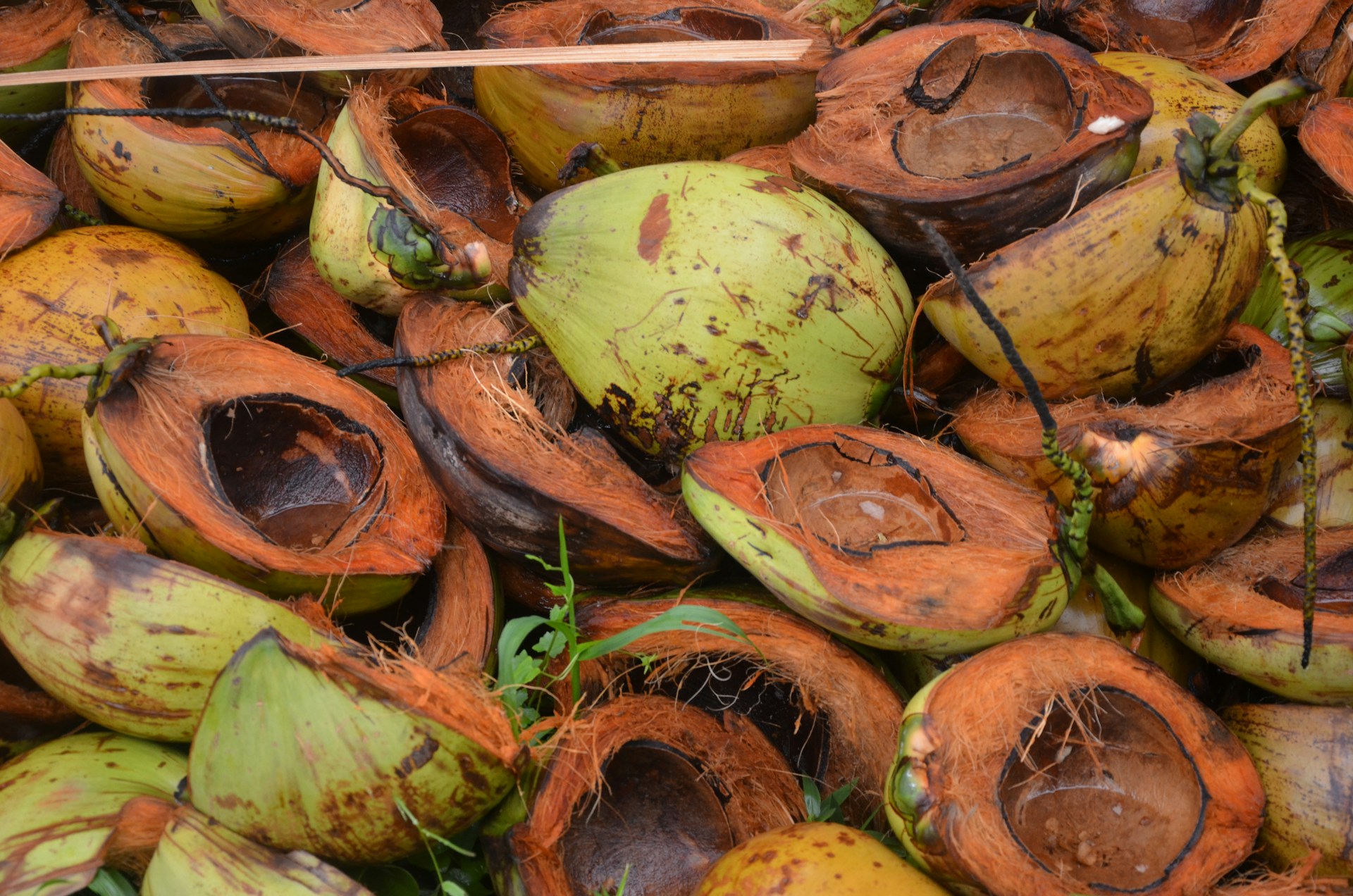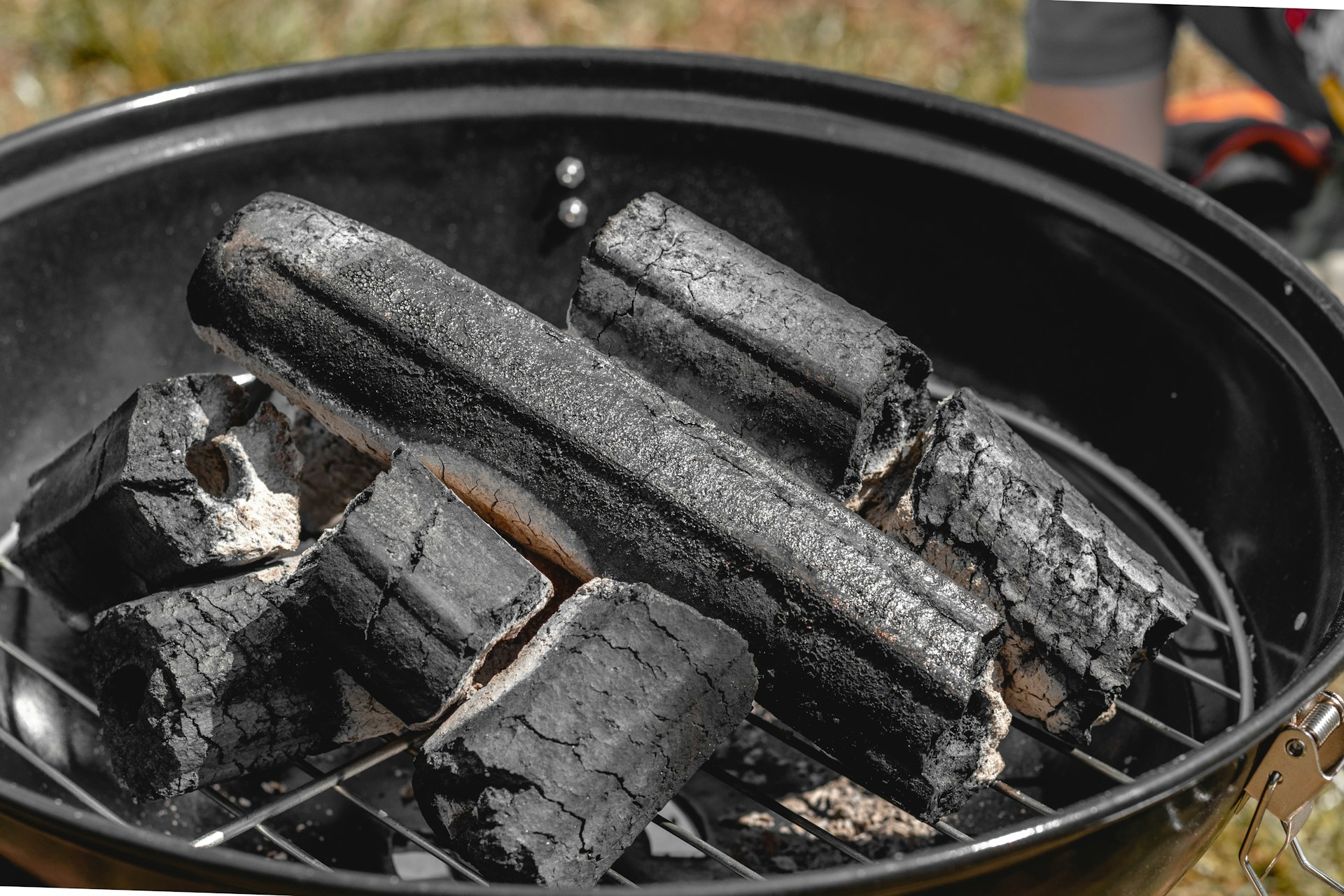
Utilization of Coconut Husks: From Waste to Products Beneficial to Society and the Environment
24 May 2025Coconut is known as a multipurpose plant that almost all parts can be utilized. One part that is often considered waste but has great potential is coconut skin (coconut fiber). With the right innovation and processing, coconut skin can be turned into various products with high economic value such as briquettes, cocopeat, cocofiber, and handicrafts . This utilization not only provides economic benefits for the community, but also has a positive impact on the environment.
Processed Products from Coconut Skin
- Coconut Charcoal Briquettes
- Briquettes from coconut fiber are produced through the process of burning and compressing coconut fiber charcoal into a solid form. These briquettes are widely used as alternative fuels because they are environmentally friendly, durable, and produce less smoke than firewood or regular charcoal.
- Cocopeat (Coconut Fiber Powder)
- Cocopeat is the result of grinding coconut fiber into a fine powder. This material is ideal for use as a planting medium because it has a high water absorption capacity, maintains humidity, and is environmentally friendly.
- Cocofiber (Coconut Fiber)
- Cocofiber is produced from the process of separating coconut fiber and is used in various industries, such as making mattresses, car seats, building materials, and even as a craft material such as brooms and doormats.
- Handicrafts and Household Products
- Coconut fiber is also often used to make craft products such as flower pots, home decorations, and cleaning tools. These products have a natural appeal and high selling value, especially in the export market.
Benefits for the Life of the Surrounding Community
- Local Economic Development
- The coconut fiber processing industry creates new jobs in rural areas, from collection, processing, to product marketing.
- Empowerment of MSMEs and Entrepreneurs
- People can start small businesses based on processed coconut fiber products, such as briquette production or handicrafts, which have both domestic and international markets.
- Utilization of Agricultural Waste
- By processing coconut fiber, people can reduce the volume of organic waste and make it an additional source of income.
Positive Impact on the Environment
- Reducing Pollution and Organic Waste
- Unused coconut skins are usually burned or simply thrown away, which can pollute the air and soil. Processing them into useful products helps reduce this pollution.
- Environmentally Friendly Alternative Fuels
- Coconut fiber briquettes are a renewable energy solution that reduces dependence on fossil fuels.
- Supporting Sustainable Agriculture
- Cocopeat as a planting medium helps reduce the use of humus soil, maintains soil fertility, and supports organic farming.
The use of coconut husk as a raw material for various products not only provides high economic value for the community, but also has a very positive environmental impact. With increasing awareness of the importance of recycling and the circular economy, coconut husk processing is a real example of how waste can be turned into a blessing for humans and the earth.



